Regulation
House Gears Up for Crucial Vote on Biden’s Veto of SAB 121 Crypto Rule
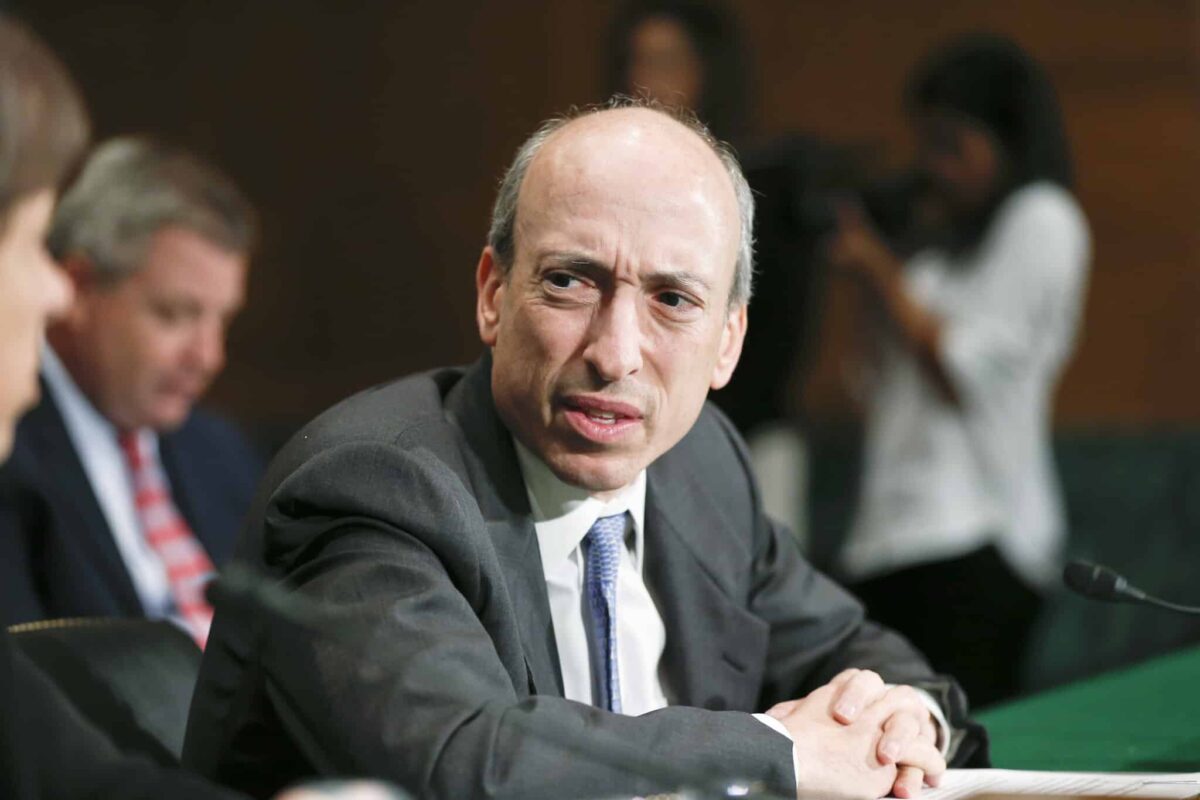
The U.S. House will vote next week to overturn President Joe Biden’s veto of Staff Accounting Bulletin 121, also known as SAB 121. The bulletin has stirred controversy in the crypto industry. It mandates that firms custodying crypto record customer holdings as liabilities.
House Majority Leader Steve Scalise indicated the vote might occur on Tuesday or Wednesday. Following the veto, the vote is a constitutional obligation. The measure previously passed the House with a 228-182 vote.
Bipartisan Push to Overturn SAB 121 Veto
SAB 121 requires firms holding crypto assets for customers to list these as liabilities. This rule has raised concerns among banks and the crypto industry. They argue it could hinder their ability to safeguard digital assets.
The resolution to overturn SAB 121 has seen bipartisan support. In May, the Senate passed it with a 60-38 vote, including support from Senate Majority Leader Chuck Schumer. However, overturning a veto requires a two-thirds majority in the House and Senate.
From venture capital firm Paradigm, Alexander Grieve noted the challenge but saw potential. “Remember when Biden vetoed the SAB121 rollback? It’s back on the House floor next week.” He pointed out the previous bipartisan support for the FIT21 crypto market structure bill.
Also Read: Craig Wright Faces $1.9M Legal Bill As London Court Issues Freezing Order
Challenges Mount in Overturning Crypto Rule Veto
Despite bipartisan support, overturning the veto remains challenging. The House needs 290 votes, 60 more than the initial 228 votes in favor. Cody Carbone from the Chamber of Digital Commerce expressed doubts about reaching this threshold.
Carbone emphasized the difficulty of changing 60 members’ minds in a week. He acknowledged the efforts for consumer protection and good governance. However, he believes the attempt to override the veto will ultimately fail.
The crypto industry remains hopeful but realistic about the upcoming vote. They recognize the steep hill to climb to overturn the veto. The focus now is on rallying additional support in the House.
The outcome of the vote has significant implications for the crypto industry. If the veto is overturned, it could ease concerns about banks’ ability to safeguard digital assets. Conversely, if it stands, firms may need help complying with SAB 121.
The crypto industry has been vocal about its concerns. They argue that the rule could stifle innovation and hinder the growth of digital assets. The upcoming vote is crucial for determining the regulatory landscape for crypto.
Supporters of overturning the veto emphasize the importance of flexibility for financial institutions. They argue that SAB 121 imposes undue burdens on firms holding crypto assets. The vote will be a crucial indicator of congressional support for the crypto industry.
Also Read: Venezuela’s Digital Asset Remittances Hit Yearly $460 Million
The presented content may include the personal opinion of the author and is subject to market condition. Do your market research before investing in cryptocurrencies. The author or the publication does not hold any responsibility for your personal financial loss.
Regulation
“Crypto Dad” Chris Giancarlo Emerges Top For White House Crypto Czar Role
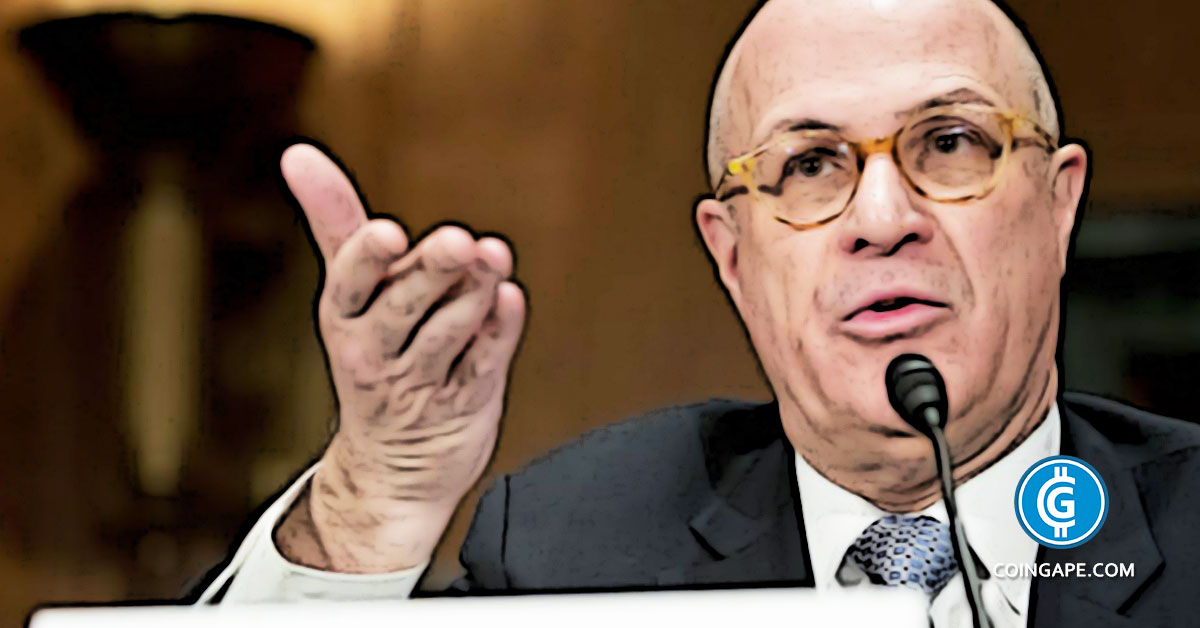
Chris Giancarlo, widely known as “Crypto Dad,” has emerged as the leading candidate for a newly proposed role of crypto czar in the White House under President-elect Donald Trump’s administration. The potential appointment underscores a strategic effort to advance crypto regulations and foster blockchain innovation in the United States.
This proposed position would be the first of its kind in the White House, aiming to bring clarity to the growing $3 trillion digital asset market. Chris Giancarlo, the former Chair of the Commodity Futures Trading Commission (CFTC), is known for his progressive approach to digital currencies and blockchain technologies.
Chris Giancarlo Leads Race for White House Crypto Czar Role Under Donald Trump
According to a Fox Business report, Chris Giancarlo is the top contender for the position of White House crypto czar, a role being considered by the Trump transition team to streamline crypto regulations and foster blockchain development.
As CFTC Chair from 2017 to 2019, Chris Giancarlo oversaw critical advancements in the digital asset space. This includes the launch of the first Bitcoin futures. He later co-founded the Digital Dollar Project, a nonprofit initiative exploring the potential of a U.S. central bank digital currency (CBDC). Giancarlo’s regulatory expertise and understanding of digital innovation position him as a key figure in shaping the future of the crypto sector.
The Trump administration aims to utilize this position to address industry concerns over the Biden administration’s perceived heavy-handed enforcement. The crypto czar would also collaborate with federal agencies to establish a framework for the $180 billion stablecoin market and enhance the overall regulatory landscape for blockchain and digital currencies.
Trump’s Strategic Approach to Digital Asset Policy
President-elect Donald Trump has expressed plans to make the U.S. a global leader in cryptocurrency and blockchain innovation. Part of this strategy includes appointing a crypto czar to advance policies to support the industry’s growth.
Trump has also proposed the establishment of a presidential crypto advisory council to address ongoing regulatory challenges. This initiative aims to align federal policies with industry needs, fostering a competitive environment for blockchain businesses. The council will explore the creation of a Bitcoin reserve as part of the administration’s broader crypto policy agenda.
The transition comes as current SEC Chair Gary Gensler announced his resignation effective January 20, 2025, coinciding with Trump’s inauguration. Gensler faced criticism during his tenure for his enforcement-driven approach to crypto regulations.
Amid speculation, Chris Giancarlo clarified that he is not pursuing the SEC Chair role. Giancarlo said in a recent statement,
“I’ve already cleaned up earlier Gary Gensler mess at the CFTC and don’t want to have to do it again.”
His focus remains on advancing crypto-friendly policies through a potential new role. According to the report, the “Crypto Dad” stated,
“I would be honored to be considered for the role.”
The creation of the crypto czar position could mark a pivotal moment in the evolution of U.S. crypto policy. With Chris Giancarlo leading the race, the industry anticipates advancements in crypto regulations under the new administration.
Disclaimer: The presented content may include the personal opinion of the author and is subject to market condition. Do your market research before investing in cryptocurrencies. The author or the publication does not hold any responsibility for your personal financial loss.
Regulation
UK to unveil crypto and stablecoin regulatory framework early next year


- The UK will introduce unified crypto regulations, including stablecoins, in early 2025.
- New rules aim to simplify oversight and avoid restrictive staking classifications.
- Labour government aims to compete with EU’s MiCA rules and US pro-crypto policies.
The United Kingdom is set to introduce a comprehensive regulatory framework for cryptocurrencies, stablecoins, and crypto staking services in early 2025, marking a pivotal shift in its approach to digital assets.
The announcement was made by the Economic Secretary to the Treasury Tulip Siddiq at City & Financial Global’s Tokenisation Summit in London on November 21.
Initially slated for December 2024, the regulatory rollout was delayed due to the change in government following the election of Prime Minister Keir Starmer’s Labour administration in July 2024.
The upcoming UK crypto regulatory framework
The upcoming framework consolidates regulations for crypto assets into a single, overarching regime, a decision Siddiq described as “simpler and more logical.”
The framework aims to provide clarity in a rapidly growing sector that has faced uncertainty in the UK.
Stablecoins will receive distinct treatment under these regulations, as their functionality does not align with existing payment services rules.
Siddiq highlighted that staking services would also avoid being designated as “collective investment schemes,” a classification that could impose burdensome restrictions.
UK aims to align with the global crypto regulatory landscape
The UK government’s renewed focus on digital asset regulation comes as it seeks to align with global developments. The European Union’s Markets in Crypto-Assets (MiCA) regulations will be fully enforced by the end of 2024, offering regulatory certainty that has positioned Europe as an attractive market for the crypto industry.
Meanwhile, the US, under President Donald Trump’s administration, has adopted a markedly pro-crypto stance, including the establishment of a White House “crypto czar” and SEC Chair Gary Gensler’s planned departure in January 2024.
The Labour government has shown its intent to catch up with international competition. In September 2024, it introduced a bill recognizing NFTs, cryptocurrencies, and carbon credits as property.
The new regulatory push reflects the UK’s ambition to regain credibility as a crypto hub while addressing criticisms of the Financial Conduct Authority’s perceived stringent oversight.
By delivering a robust, streamlined framework, the Labour government aims to bolster the UK’s standing in the multibillion-dollar crypto industry.
Regulation
Gary Gensler To Step Down As US SEC Chair In January
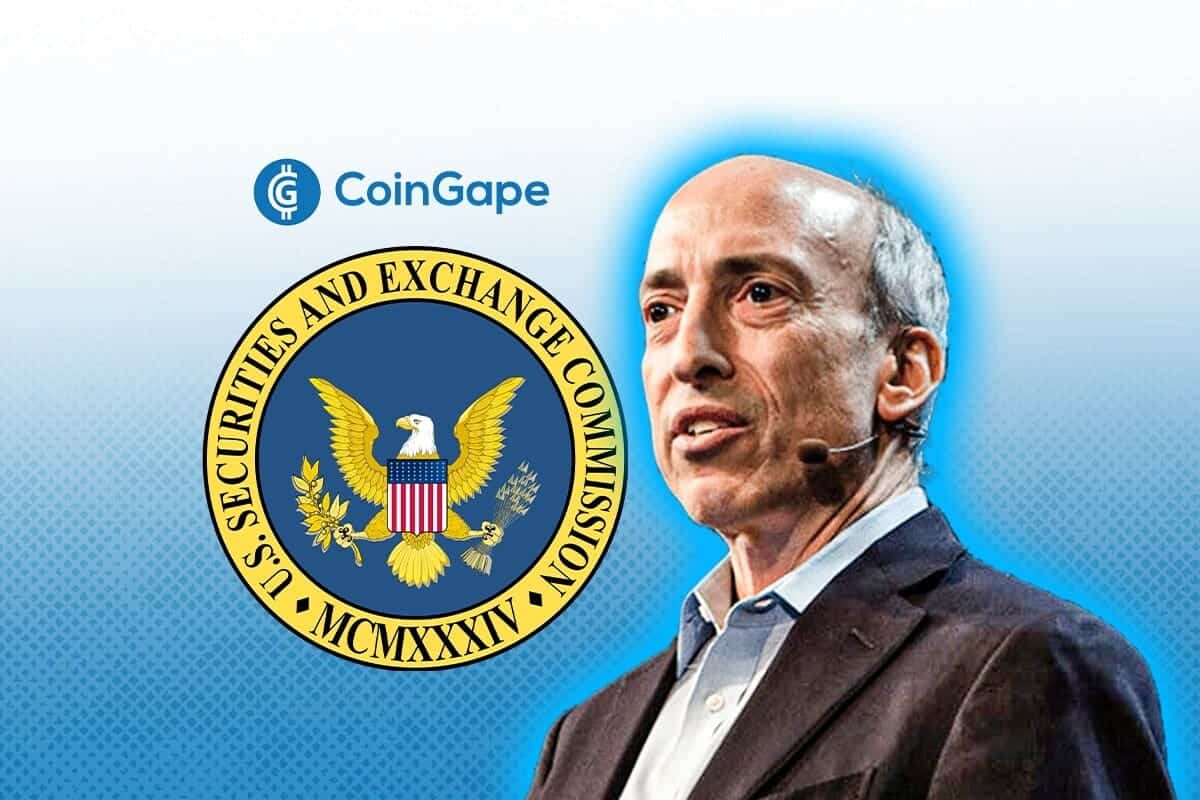
In a recent development, the US Securities and Exchange Commission (SEC) announced that Gary Gensler will step down from his position next year. This follows calls for Gensler to resign since Donald Trump won the US presidential elections.
Gary Gensler To Step Down As US SEC Chair
The US SEC announced in a press release that Gary Gensler will depart the Agency on January 20, 2025. The US SEC Chair also confirmed this development in an X post. Interestingly, this comes on the same day that Donald Trump will be inaugurated as the 47th president of the United States.
Following the announcement, Gensler also used the opportunity to reflect on his time at the Commission. He remarked that it has been an “honor of a lifetime” to serve alongside those at the SEC. He also thanked President Biden for the opportunity to serve in the position. Gensler has been the US SEC Chair since April 2021. During his time, he has spearheaded several litigations against the crypto industry.
This includes the long-running legal battle with Ripple, which Gensler took over from his predecessor Jay Clayton, which bordered on whether XRP was a security. Up till now, the Agency continues to reiterate this ‘digital asset securities’ claim.
Disclaimer: The presented content may include the personal opinion of the author and is subject to market condition. Do your market research before investing in cryptocurrencies. The author or the publication does not hold any responsibility for your personal financial loss.
-

 Ethereum21 hours ago
Ethereum21 hours agoFundraising platform JustGiving accepts over 60 cryptocurrencies including Bitcoin, Ethereum
-

 Market18 hours ago
Market18 hours agoSouth Korea Unveils North Korea’s Role in Upbit Hack
-

 Market22 hours ago
Market22 hours agoCardano’s Hoskinson Wants Brian Armstrong for US Crypto-Czar
-

 Altcoin15 hours ago
Altcoin15 hours agoDogecoin Whale Accumulation Sparks Optimism, DOGE To Rally 9000% Ahead?
-
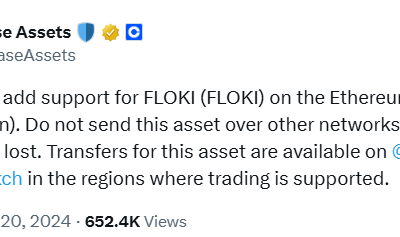
 Altcoin20 hours ago
Altcoin20 hours agoWhy FLOKI Price Hits 6-Month Peak With 5% Surge?
-

 Bitcoin13 hours ago
Bitcoin13 hours agoMarathon Digital Raises $1B to Expand Bitcoin Holdings
-

 Market13 hours ago
Market13 hours agoETH/BTC Ratio Plummets to 42-Month Low Amid Bitcoin Surge
-

 Altcoin23 hours ago
Altcoin23 hours agoSHIB Burn Rate Surges 2200%, Shiba Inu Eyes Parabolic Rally Ahead?


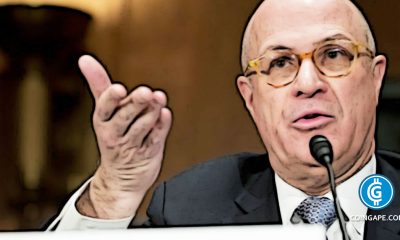

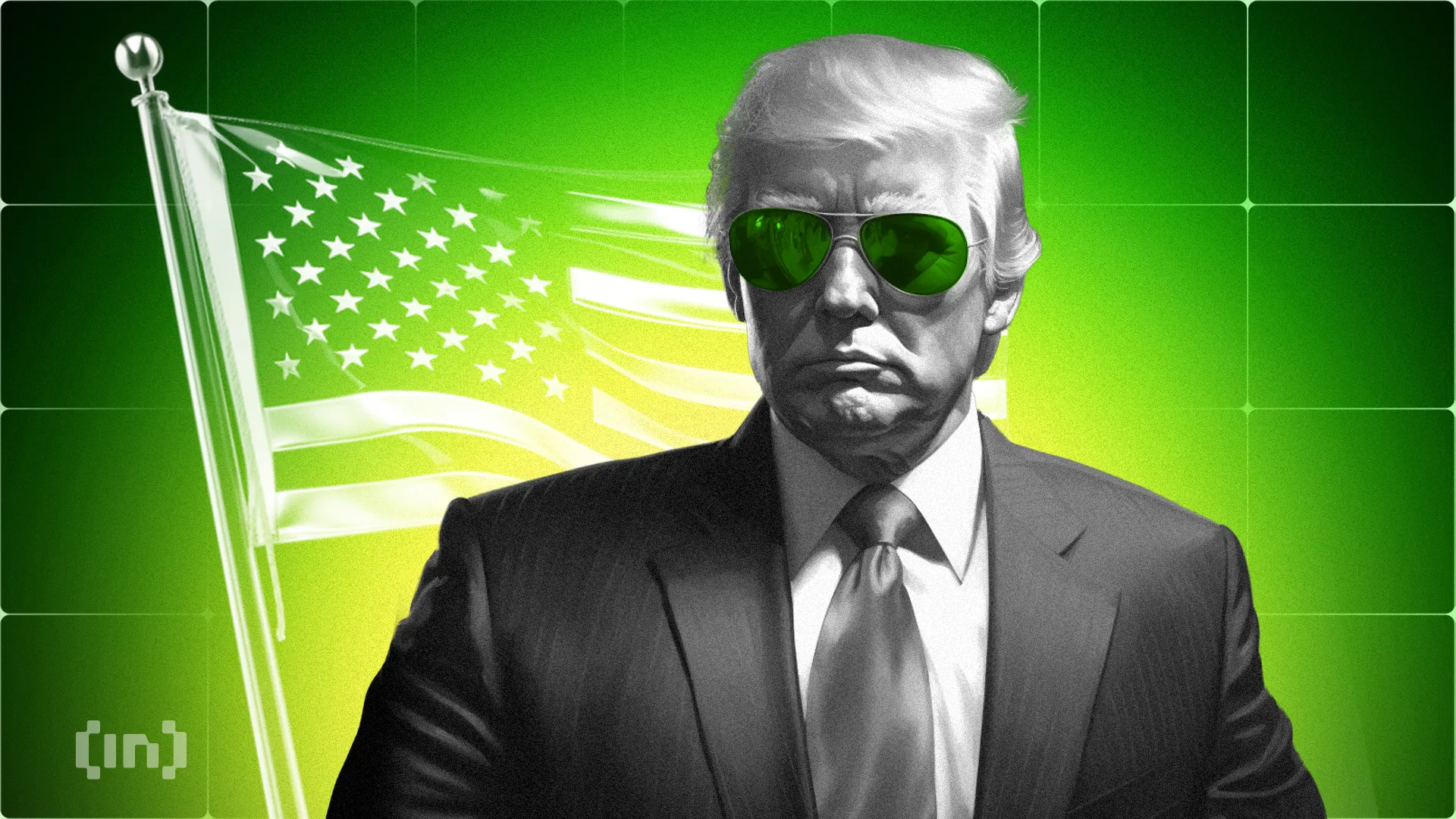





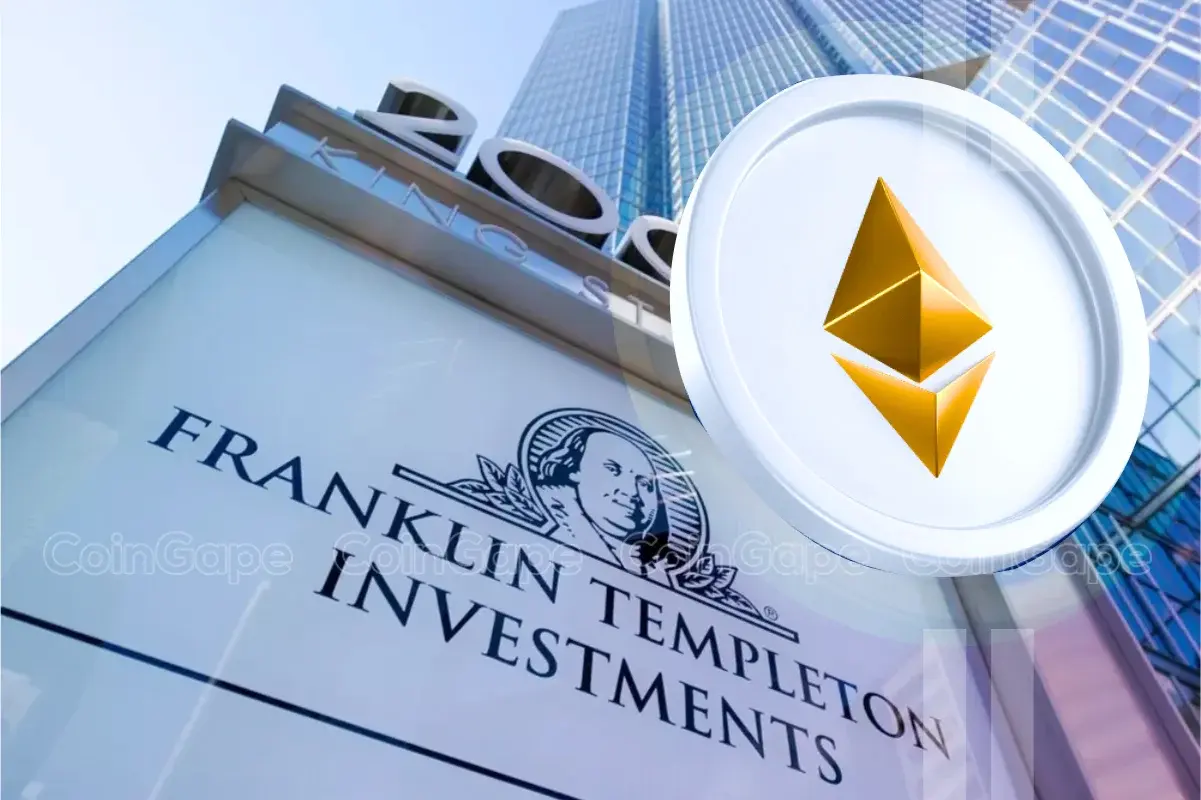









✓ Share: